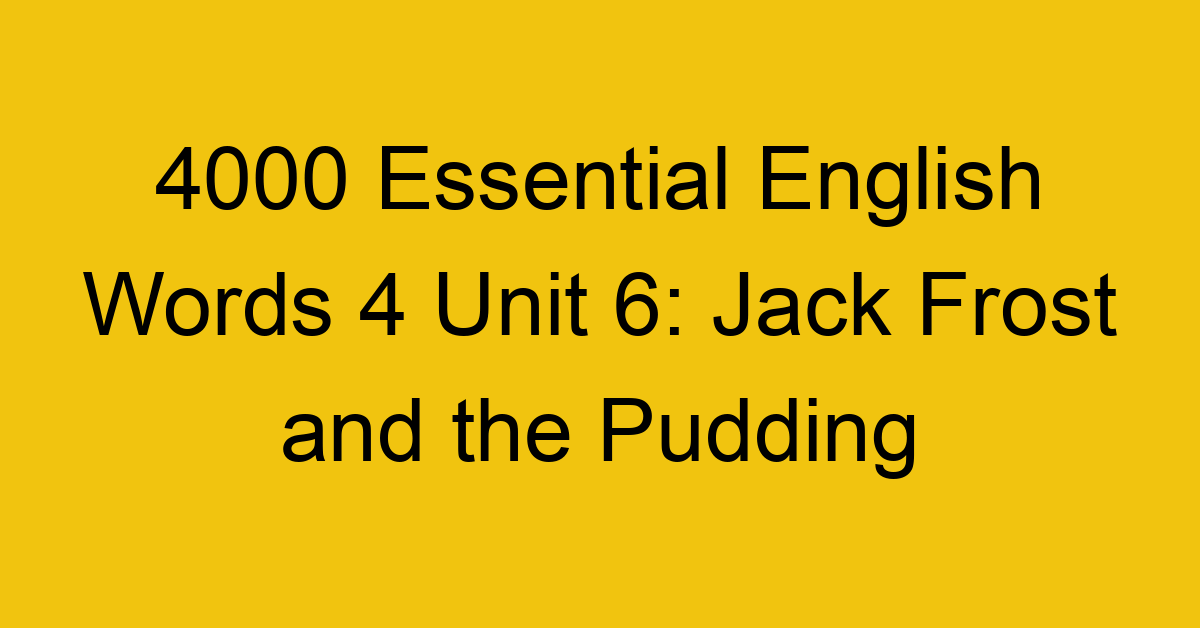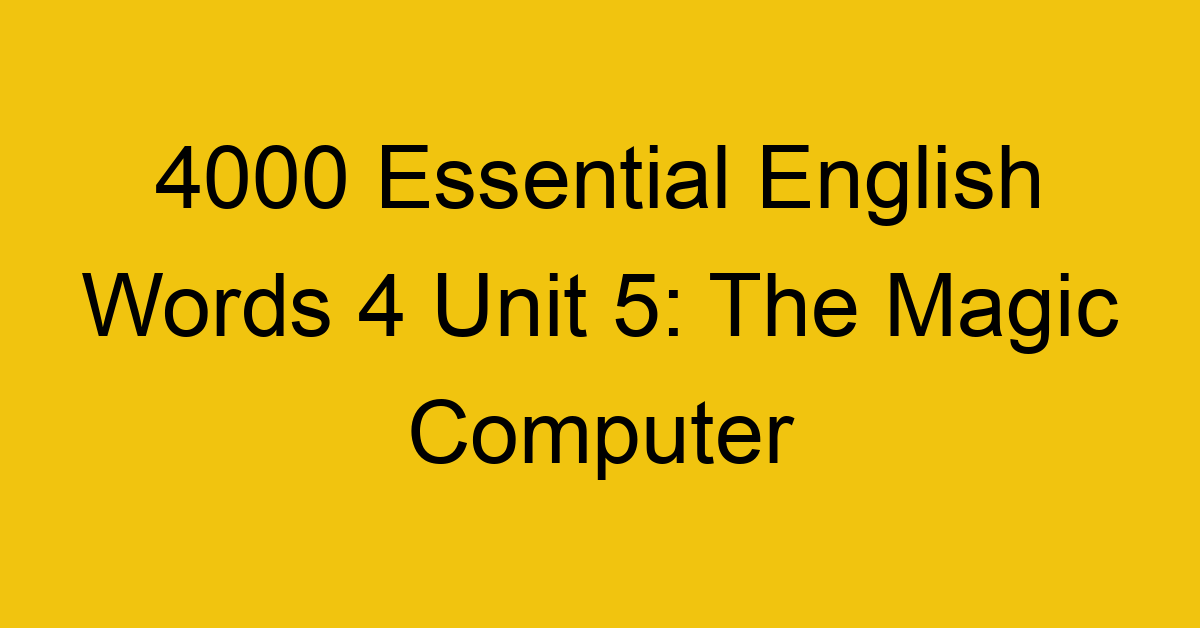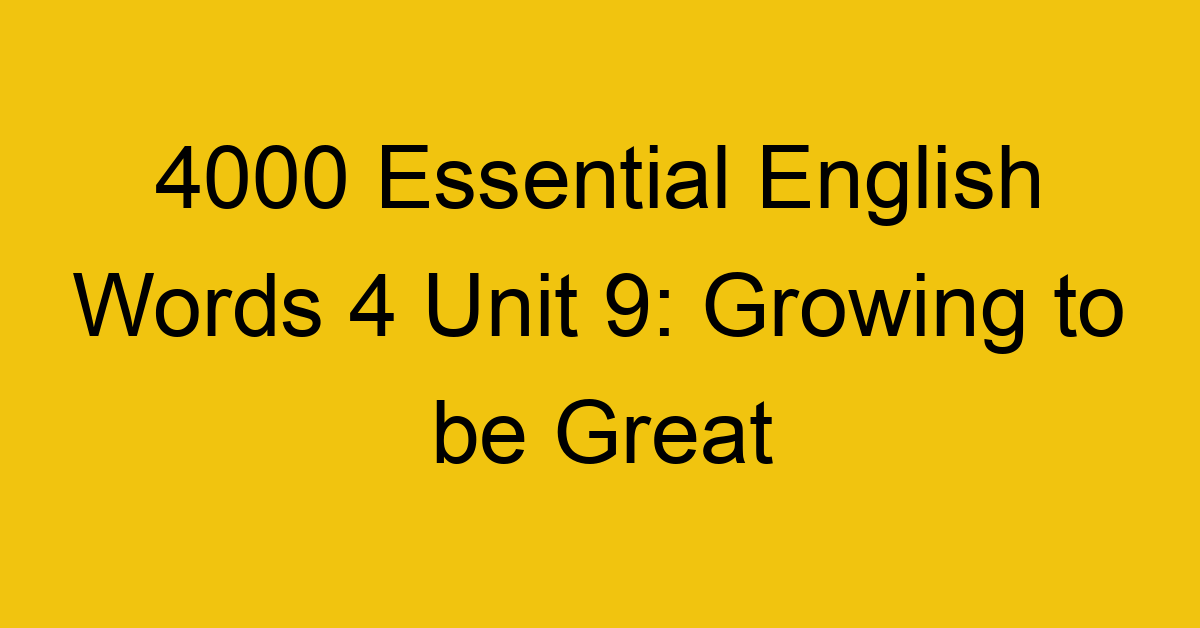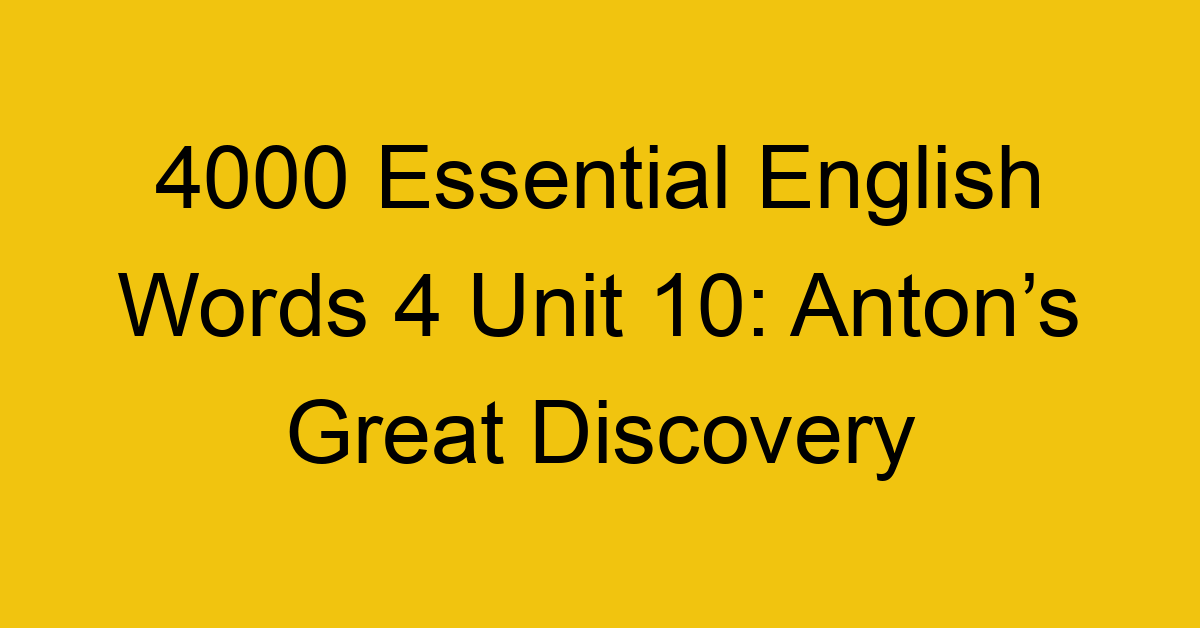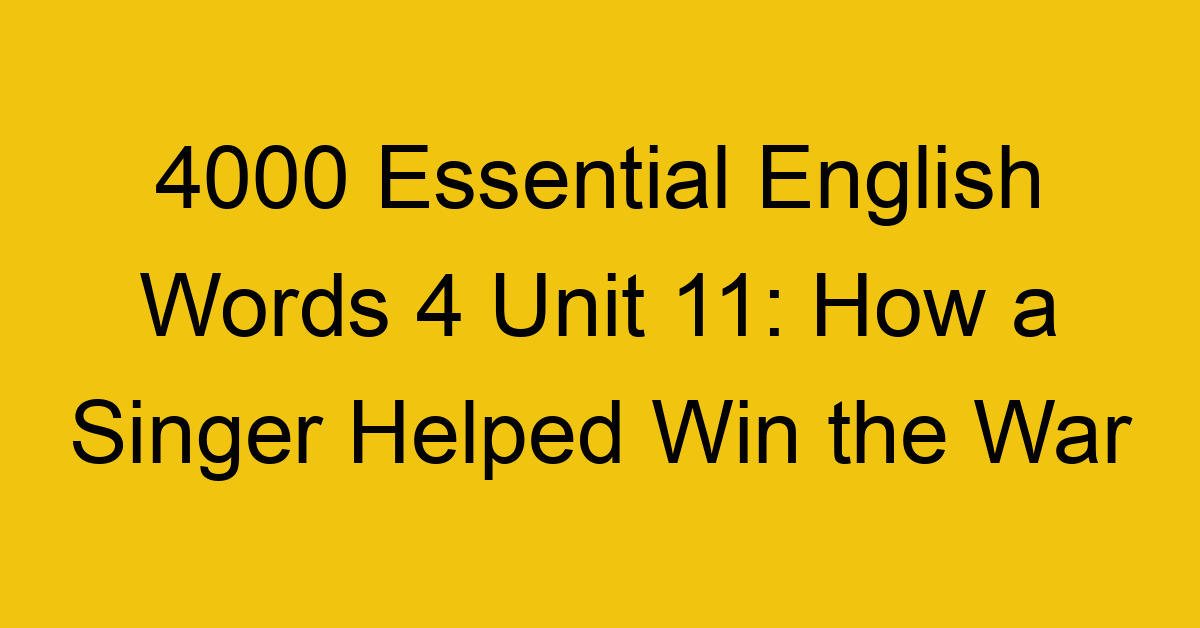4000 Essential English Words 4 Unit 8: Janie and the Music Player
Word List
- access [ˈækses] n.
Access is the right to enter or use something.
→ The manager was the only person with access to the password.
- conduct [ˈkɒndʌkt] n.
Conduct is the way that someone acts.
→ She was punished for her bad conduct.
- constant [ˈkɒnstənt] adj.
When an event or action is constant, it happens a lot or all the time.
→ The television at home is in constant use.
- crack [kræk] n.
A crack is a narrow space between the parts of something broken.
→ The old window was covered with cracks.
- device [diˈvais] n.
A device is an object or a machine.
→ A thermometer is a device that tells temperature.
- enclose [inˈklouz] v.
To enclose something is to contain it.
→ The cows in the field were enclosed by a fence.
- grip [grɪp] v.
To grip something is to hold it very tightly.
→ I was scared, so I gripped my older sister’s hand.
- halt [hɔːlt] v.
To halt is to stop moving.
→ The criminal halted when he saw the police coming.
- impending [ɪmˈpendɪŋ] adj.
If something is impending, it is going to happen soon.
→ The student was nervous about his impending test.
- influence [ˈinfluəns] v.
To influence someone or something is to have an effect over them.
→ My friend influenced my decision to attend Terrance University.
- law [lɔː] n.
A law is a rule made by the legislative body.
→ The students learned about different laws during social studies class.
- mode [moud] n.
A mode is a setting or condition on a machine.
→ Mother turned the TV to quiet mode while she talked on the phone.
- perspire [pəsˈpaɪər] v.
To perspire means to sweat.
→ I usually perspire a lot when I am at practice.
- replace [riˈpleis] v.
To replace something is to put it in the place of something else.
→ I replaced the tire on my car because it was flat.
- snap [snæp] v.
To snap something means to break it suddenly, which causes a loud noise.
→ I took the stick and snapped it with my hands.
- sly [slai] adj.
If a person or animal is sly, they are sneaky or good at tricking people.
→ The sly fox stole the eggs from the nest.
- tend [tend] v.
To tend to do something is to be likely to do it or to do it often.
→ My mom tends to buy me the perfect gift each Christmas.
- valid [ˈvælid] adj.
When something is valid, it is correct or based on good reasoning.
→ The expert’s opinion on the subject was more valid than others.
- version [ˈvəːrʒən] n.
A version is an account of something that differs slightly from the original.
→ She read the students British version of the Chinese fairy tale.
- whatsoever [hwɒtsouˈevər] adj.
You use whatsoever after a noun to emphasize that there is nothing of that thing.
→ The boy had no idea whatsoever how to solve the story problem.

